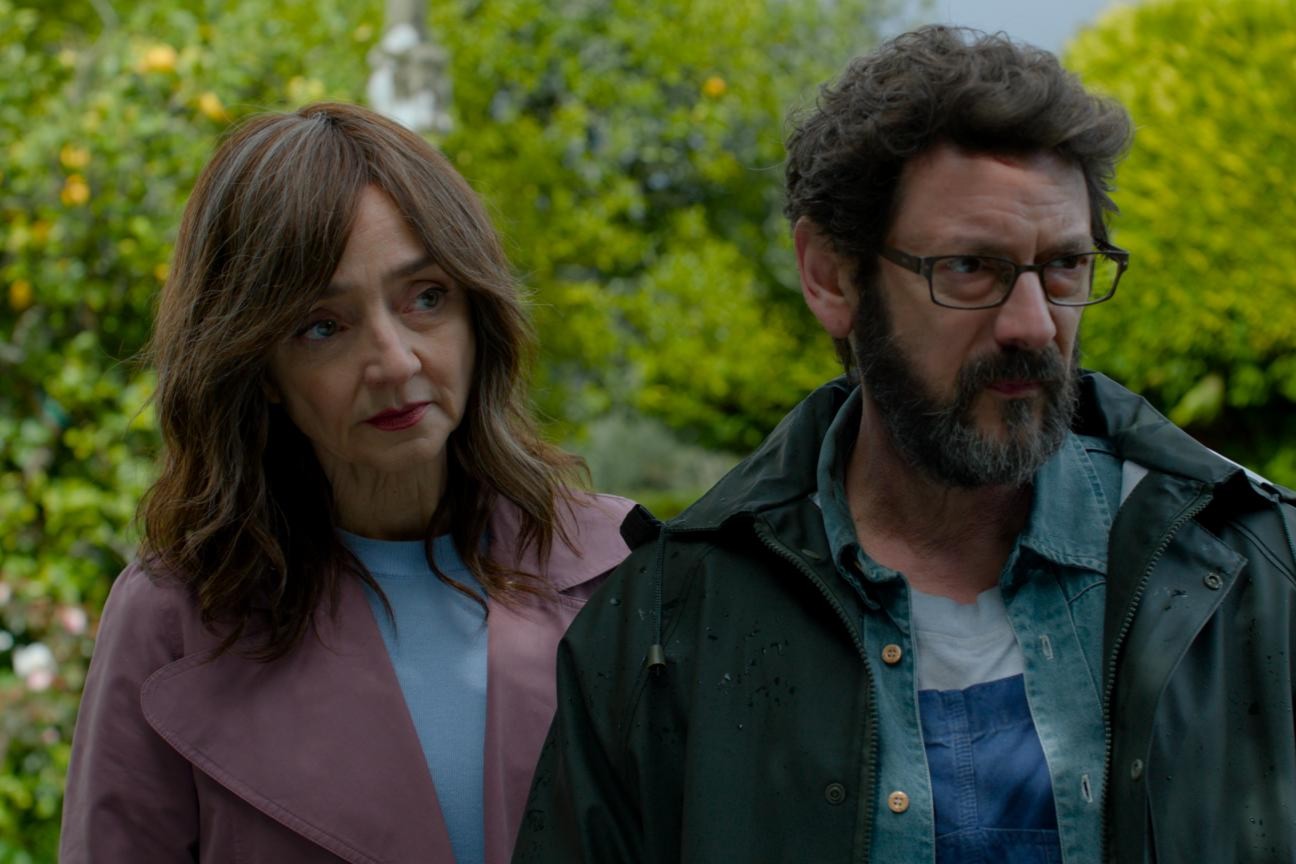The second film by director Avelina Prat is a melancholy delight, a lilting, laconic story of acceptance and reinvention that rewards some initial patient investment with a rich and immersive experience. The Portuguese House tells an unconventional story of self-imposed exile and of grabbing an opportunity with both hands. It might rely on occasional narrative contrivance, but overcomes these issues with deep characterisation and a tourist-friendly eye for the entrancing scenery of northern Portugal.
Fernando (Manolo Solo) thinks he is fairly contented with his lot in life. That is until his Serbian wife abruptly leaves with no explanation and leaving no was of contacting her. Ironically, the geography professor suddenly finds his life without direction so takes an off-season trip to Portugal, where he happens to meet Manuel, a gardener. On a whim, Fernando assumes the gardener’s identity and take on his job at the picturesque quinta of Amalia (Maria de Medeiros), a watchful and enigmatic woman with whom he forms an expected friendship.
Like the home that gives the film its title, The Portuguese House has an elegant, lived-in atmosphere. It has its revelations and its secrets, but it feels like the script coaxes them out, as if earning its own trust. This is exemplified by Fernando, who slowly comes to wear his new identity like a favourite pair of gardening gloves, earning the friendship of his employer. The moral perspective of his deception is never directly addressed, and it easy to forget given the lack of overt judgement from Prat’s but it’s there in the background, adding a further, slightly reticent dimension to Fernando as a character.
It’s in the gentle rhythms of life on Amalia’s estate that Prat’s film slowly builds a wellspring of warmth and hope. There’s so much simple joy to be had in the easy rapport between Amalia and Fernando (both de Medeiros and Solo offer a masterclass in that rarity in cinema, the comfortable silence), and the quinta‘s effervescent cook Rita (Rita Cabaço). Tonally, it feels very reminiscent of the langorous cottagecore of the recent Juliette Binoche treat The Taste of Things. What drama is there plays out at the lowest ebb. Similarly, on the romantic front there is an obvious spark between the Fernando and Amalia, but there’s not the sense that a platonic outcome would be a poor result.
Some may be a little jarred by a relatively major switch in focus come the final third, which sees Fernando meet another person who has adopted someone else’s identity, Serbian waitress Olga (Branka Katić, who retains the impish, free-spirited appeal she brought to the wonderful Black Cat, White Cat over 25 years ag0). It certainly adds some impetus for the third act, but it does feel a bit of a wrench to be plucked from the unique narrative furrow that had been ploughed. And it definitely feels more like a structured ‘plot point’ than anything else in the film (although throws up a thematic mirror to Fernando). Again however, Solo establishes an easy chemistry with his co-star that shines through.
A film of remarkable confidence, The Portuguese House invites the viewer to adapt to its deliberate pacing, its comfort with moments of silence, its virtually plotless but delectably sweet and melancholy second act. The performances are masterful in their restraint and intelligence, finding the meaningful moments in the smallest of gestures. It’s a deeply human and compassionate film that doesn’t go for easy emotional catharsis, instead imbuing the smallest moments of connection and contentment with a kind of triumph.
Screened as part of Edinburgh Spanish Film Festival


Comments